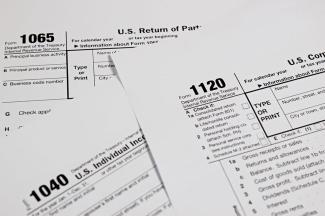Certification is an important component of professional development for accountants. It helps to demonstrate expertise in a variety of areas, including financial accounting and reporting, business management and strategy, taxation, assurance and auditing, and information systems. In this blog, we will discuss a professional certification for accountants that covers all these areas in detail.
The Certified Public Accountant (CPA) Certification
The CPA certification is a professional designation that demonstrates expertise in a wide range of accounting and financial areas. It is one of the most respected and recognized certifications in the accounting industry, and is highly valued by employers, clients, and other stakeholders.
To become a CPA, candidates must meet specific education and experience requirements, as well as pass a rigorous exam. The education requirements typically include a bachelor's degree in accounting or a related field, although some states also accept degrees in other disciplines. In addition, candidates must complete a specified number of accounting and business courses, such as financial accounting, auditing, taxation, and business law.
After meeting the education requirements, candidates must then gain a specified amount of accounting experience. This may include working in public accounting, industry, government, or academia, and must be supervised by a licensed CPA.
Once the education and experience requirements are met, candidates must pass the Uniform CPA Examination, which is a four-part exam that covers financial accounting and reporting, business management and strategy, taxation, assurance and auditing, and information systems. The exam is administered by the American Institute of Certified Public Accountants (AICPA), and is designed to test candidates' knowledge, skills, and abilities in each of these areas.
Benefits of the CPA Certification
The CPA certification offers a number of benefits to accounting professionals. It demonstrates expertise and knowledge in a wide range of accounting and financial areas, which is highly valued by employers, clients, and other stakeholders. It also enhances professional credibility and reputation, and may lead to increased job opportunities and higher salaries.
In addition, the CPA certification requires ongoing professional education and development, which helps to ensure that CPAs stay current with changes in the accounting industry and maintain their knowledge and skills. This ongoing education also helps to promote ethical behavior and high standards of professional conduct among CPAs.
Conclusion
The CPA certification is a professional designation that demonstrates expertise in a wide range of accounting and financial areas. It requires specific education and experience requirements, as well as passing a rigorous exam. The certification offers numerous benefits to accounting professionals, including enhanced credibility, increased job opportunities, and ongoing professional development. Overall, the CPA certification is a valuable asset for accountants who want to demonstrate their expertise and advance their careers in the accounting industry.



